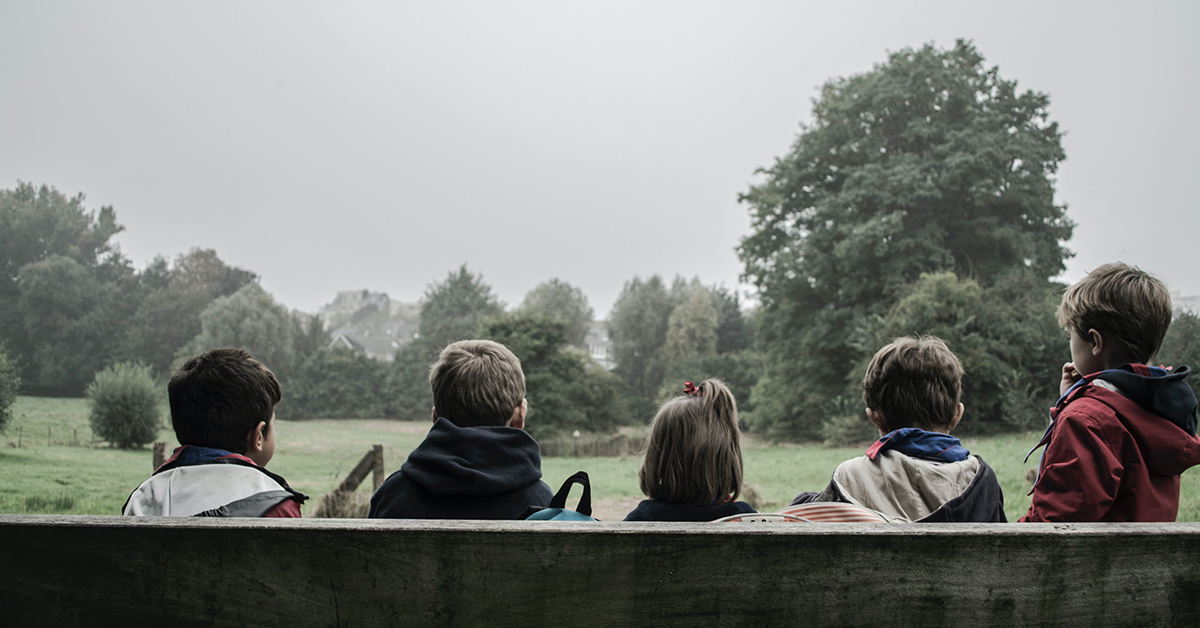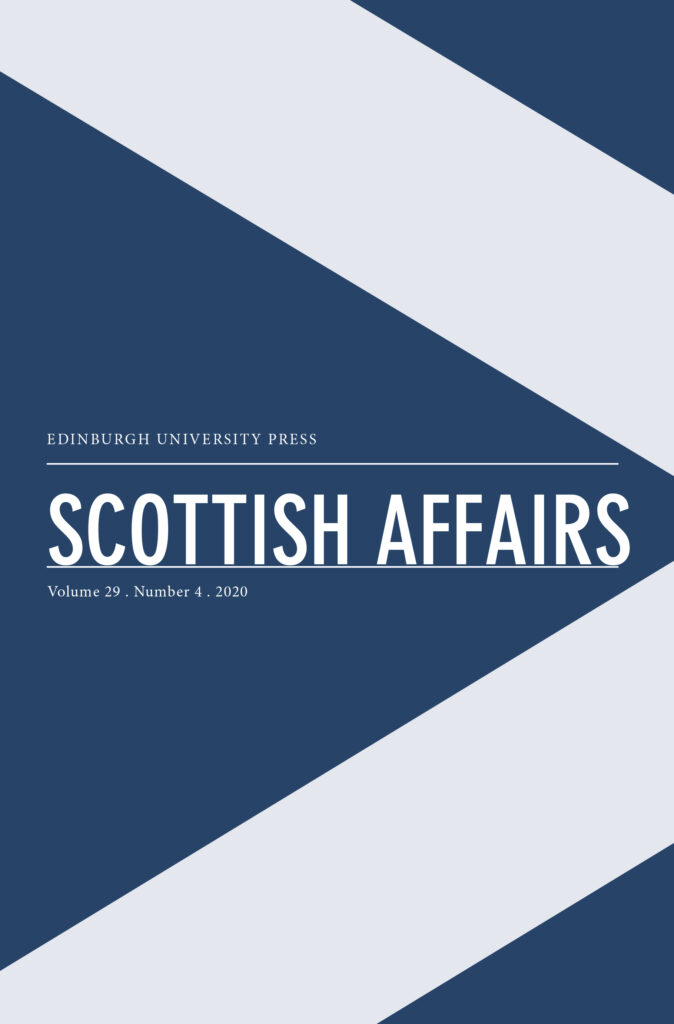
By Ariane Critchley, Emma Davidson, Laura H.V. Wright
The guest editors of the November 2020 edition of Scottish Affairs share their thoughts on why Adverse Childhood Experiences (ACEs) have galvanized so much attention in Scotland. They ask the question, in whose interests does an ACEs agenda for Scotland actually serve?
Our special issue, out this week, focuses on Adverse Childhood Experiences in Scotland – otherwise known as ACEs. ACEs are described as stressful childhood events that can have significant and long-term consequences on health and social outcomes. ACEs have gathered attention in recent years, in public policies, in social care practice and as a wider ‘movement’ galvanised around the objective of ‘Making Scotland an ACE-aware Nation’. With contributions from academics and practitioners across different disciplines and practice settings, a central question runs through the issue: in whose interests does an ACEs agenda for Scotland actually serve?
Gary Walsh’s article considers whether commercial interests have been satisfied through public sector investment in philanthrocapitalist ACEs and ‘trauma-informed’ training for Scottish institutions and services. Their investigations find strong hallmarks of policy entrepreneurship within the development of an ACEs ‘movement’ that has arisen from the original United States’ studies. Sarah Nelson wonders why findings from ACE studies appear to have had so little positive impact on support for survivors of child sexual abuse, despite abuse in childhood being a key motivator for the original research. Sarah argues that adult survivors have gained little from this fresh analysis of the long-lasting impact of traumatic experiences and breaches of trust suffered in early life. Instead, an agenda around the prevention and detection of ACEs in contemporary childhoods has developed. This surely should be a good thing for today’s children.
Yet an exploration of whether today’s children and young people’s interests and rights are served by developments in policy and practice designed to protect them from the potential health impacts of adversity in childhood only raises further questions.
Yet the extent to which a focus on the potential health impacts of adversity in childhood serves the interests and rights of today’s children and young people can be questioned. As Emma Davidson and Laura Wright highlight, an anomaly in the adoption of ACEs into Scottish policy-making is the absence of meaningful participation from children themselves. Given Scotland’s strong commitment to children’s rights, this is puzzling. Rather than foregrounding children’s experiences and views, the dominant ACEs perspective ‘emphasises the role of the adult as expert, with little room for children and young people themselves’ (Davidson and Wright, 2020: 546). An ACEs lens views children primarily as (potential) victims and therefore ‘prioritises ‘child protection over child participation’ (ibid). Furthermore, as has often been highlighted by critics of the ‘movement’ that has grown out of the public health research that ‘identified’ ACEs, ‘the original ten ACEs are firmly rooted within a child’s family and do not cognise the harms caused by structural inequalities and discrimination’ (Treanor, 2020: 476). Morag Treanor’s contribution presents an interrogation of the way that childhood adversity and childhood poverty are conflated in the Scottish context. Morag argues that this ‘blurring of the boundaries’ has real-world consequences for parents, who are expected ‘to alleviate the negative impacts of systemic inequalities rather than society tackling the systemic inequalities in the first place’ (Treanor, 2020: 480-481).
The impact of perspectives that individualise risks to children and locate them within the family is a key theme of Ariane Critchley’s article. Critchley (2020) explores harms that were created for pregnant women, who participated in a study of pre-birth child protection work. She argues that whenever the responsibility of parents to nurture and protect their children from adversity at an individual level is emphasised, society’s long-standing moral project of educating and responsibilising poor mothers is re- invigorated. This was true for the women that took part in her research during the height of the popularity of the idea of a ‘critical period’ for child development, beginning in utero, and continuing over the first two to three years of life. As one young expectant mother described her experience of child welfare processes, ‘I don’t feel like I’ve been treated even as a human’. Whilst Adam Burley’s practitioner perspective highlights the positives and potential of an ACEs perspective in work with adults, he also warns that ‘health and social care services can, at times, be very proficient at excluding, abandoning, blaming and shaming individuals’ (Burley, 2020: 560).
Why as a society are we so quick to move to a protectionist position in relation to children and a blaming position in relation to adults, bypassing any meaningful engagement with children and young people’s participation along the way? Morag Treanor suggests that it is because the blaming and protectionist approach provides ample opportunity to side-step societal responsibility for the real problems created by poverty and multiple inequalities. The glossy policy entrepreneurship that Gary Walsh lays bare may have positive impacts. For example, ACES may strengthen relationship-based approaches in practice (Mooney, Bunting and Coulter, 2020), and provide a shared language for exploring the impact of childhood adversity (Burley, 2020). However, the catchy well-packaged appeal of ACEs risks obscuring some thorny issues for the health, wellbeing, and rights of children, young people, and adults in Scotland. We align with Morag Treanor’s conclusion that, ‘poverty and inequality… should be the focus of policy action in Scotland’ (2020: 489), alongside a strengths based focus that supports children – and adults – meaningful participation, rights, and well-being.
Government, services, and third sector organisations need to reflect on how they can effectively include children and young people in their initiatives, as described by Easton (2020) in this issue, with an expanded idea of family. Together, this collection points to an ongoing need for critical engagement in ACE policy with a commitment to assess how this is being translated into practice. While theoretical debates are important, future research must prioritise the experiences of practitioners, and those with lived experience of adversity. As a society, we must work in partnership with children, young people, and adults with diverse lived experiences to prioritise addressing root causes of suffering and ill-health (e.g rising levels of poverty, inequality and discrimination), and to transform policy, program, and societal approaches.
Scottish Affairs is Scotland’s longest running journal on contemporary political and social issues and is widely considered the leading forum for debate on Scottish current affairs. Articles provide thorough analysis and debate of Scottish politics, policy and society, and is essential reading for those who are interested in the development of Scotland. Find out how to subscribe, or recommend to your library. You can also sign up for Table of Contents alerts.






